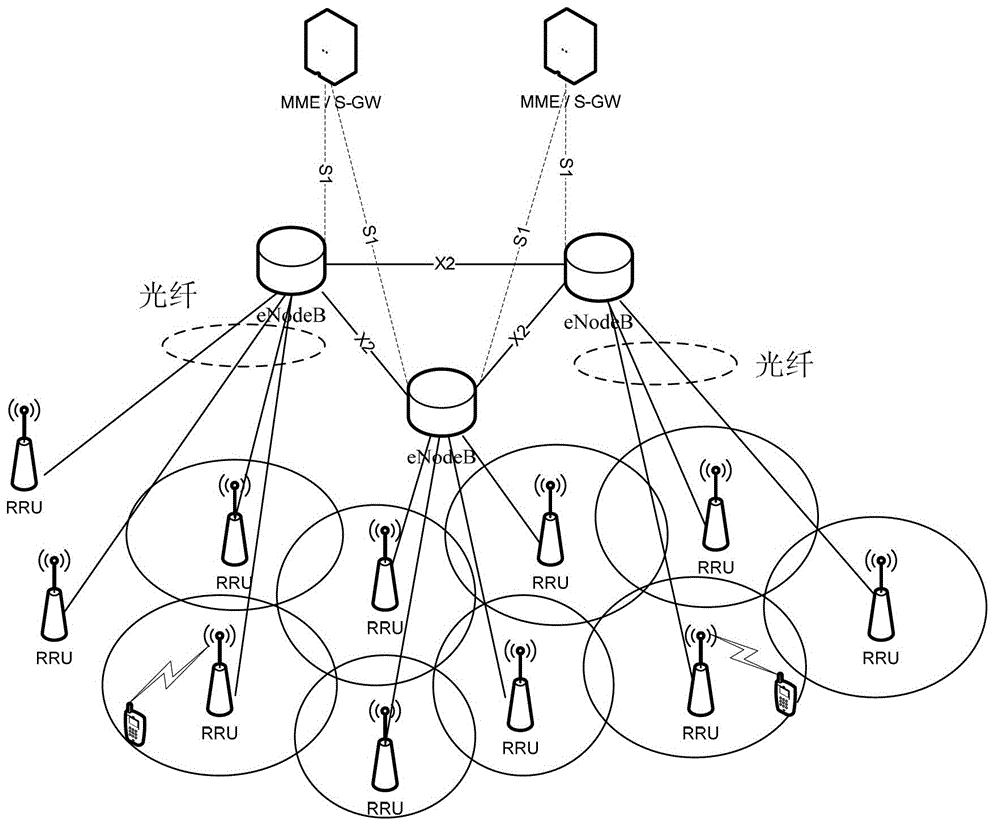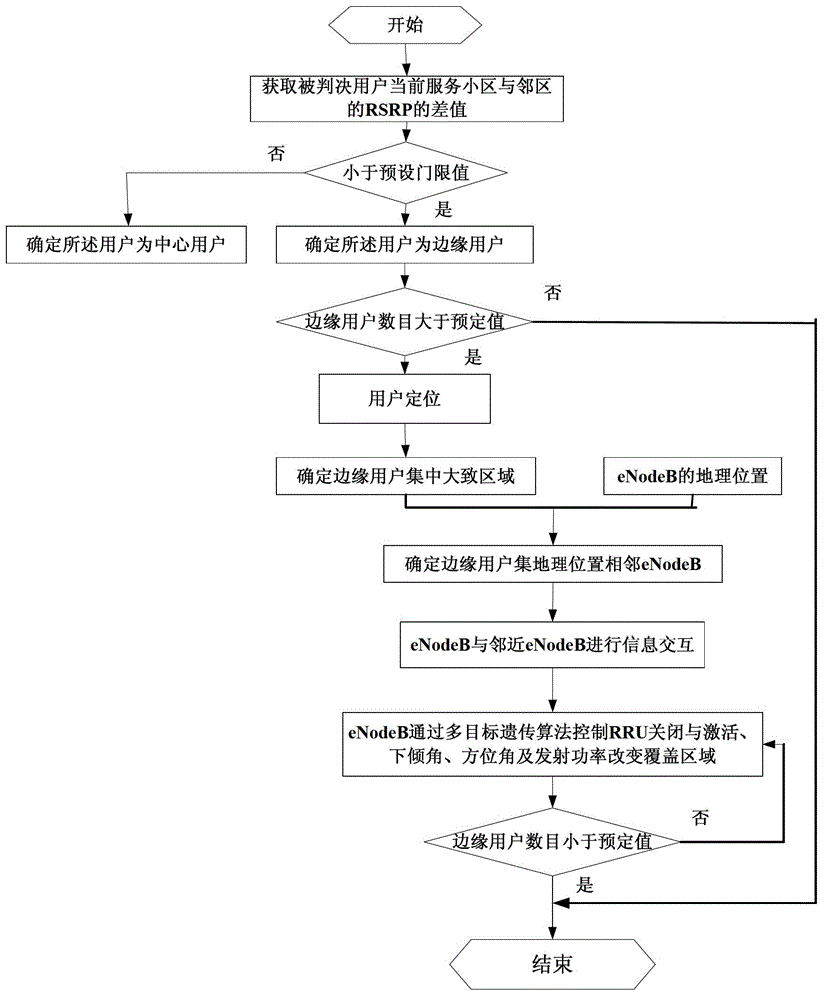Method for improving performance of cell edge users by using multi-objective genetic algorithm
A multi-target genetic and edge user technology, applied in the field of improving the performance of cell edge users, can solve the problem of high complexity of cell interference randomization, poor interference suppression effect, and resource scheduling algorithm that is difficult to consider frequency domain, time domain, and air domain at the same time and power fairness to achieve the effect of improving cell edge throughput, reducing the number, and reducing the probability of inter-cell interference
- Summary
- Abstract
- Description
- Claims
- Application Information
AI Technical Summary
Problems solved by technology
Method used
Image
Examples
Embodiment Construction
[0044] Embodiments of the present invention will be described in detail below in conjunction with the accompanying drawings.
[0045] The present invention adopts the radio remote unit (the English full name of the radio frequency remote unit is Radio Remote Unit, abbreviated as RRU) + baseband processing unit (the English full name of the baseband processing unit is Base Band Unit, abbreviated as BBU) for networking, such as figure 1 shown. exist figure 1 Among them, MME (Mobility Management Entity) is the key control node of 3GPP protocol LTE access network. It is responsible for the positioning of UE in idle mode, paging process, including relay, and S-GW (Serving Gate Way) is the connection NO.7 signal For the equipment of Lingnet and IP network, S1 is a logical interface defined by 3GPP, the third-generation mobile communication technical specification organization, eNodeB is an enhanced base station, one BBU corresponds to one logical cell, and multiple RRUs cover one l...
PUM
 Login to View More
Login to View More Abstract
Description
Claims
Application Information
 Login to View More
Login to View More - R&D
- Intellectual Property
- Life Sciences
- Materials
- Tech Scout
- Unparalleled Data Quality
- Higher Quality Content
- 60% Fewer Hallucinations
Browse by: Latest US Patents, China's latest patents, Technical Efficacy Thesaurus, Application Domain, Technology Topic, Popular Technical Reports.
© 2025 PatSnap. All rights reserved.Legal|Privacy policy|Modern Slavery Act Transparency Statement|Sitemap|About US| Contact US: help@patsnap.com



